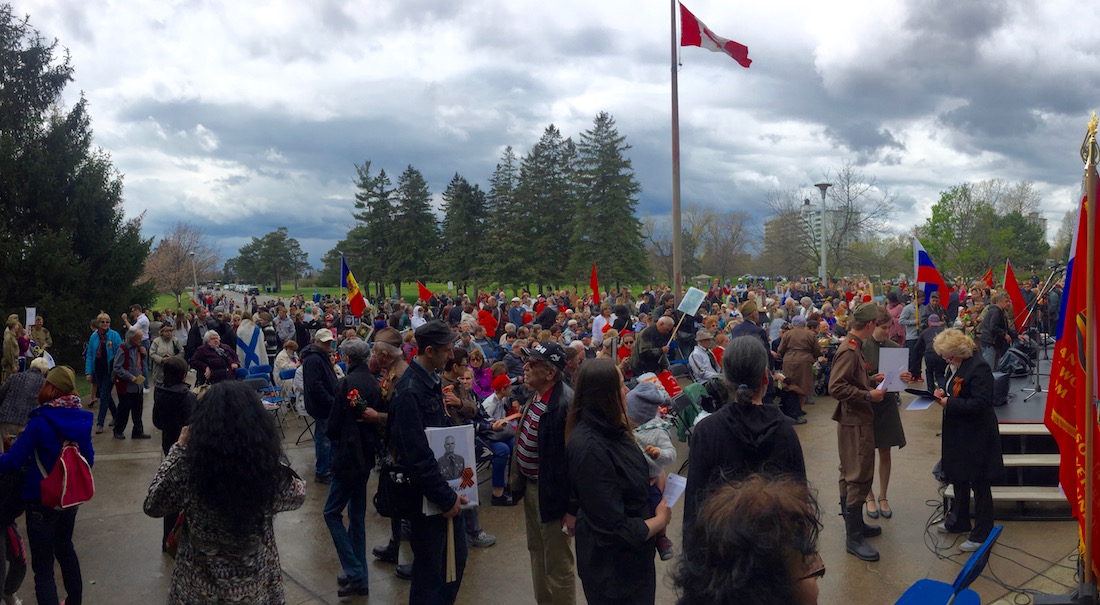On the other hand some Russian scholars insist that such opinions are not representative of most of the peoples in the Russian Federation. These are the views, they say, of “ultra-nationalists” in the minority communities. It's interesting to note that many Russians view the Victory Day skeptics amongst non-Russsians as being a sign of the “weakness” of the Russian empire.
Paul Goble, in expanding on the notion, says that the “chief cause” of the 1991 collapase of the Soviet Union was in essence the occupation of the Baltic countries, Western Ukraine, Western Belarus, and Bessarabia. In actuality, Goble says many see the cynical irony of the May 9th celebrations as a “Pyrrhic victory” for Russia. The resounding victory was in the long run a disastrous loss. (A pyrrhic victory is won with such great cost it is really a defeat.)
Russians have blogged that the real cause of the Soviet Union's implosion was the occupation or as some have pointedly called it, “the liberation” of the border countries. In 2013 Ekho Moskvy carried Russian businessman Aleksey Blindul's blog, which was blunt in its understanding of the causes of the destruction of the USSR. (Ekho Moskvy is a Gazprom-owned radio station, a media anomaly in Moscow that has been fiercely independent in its views and thus under constant attack by Putin's Kremlin.)
The blog emphasizes that the chief cause of the destruction of the Soviet empire was the occupation. After the war some of the territories that the Soviet Union had acquired, Eastern Prussia and a part of Karelia were emptied of the indigenous population and peopled with resettlers from other regions of the USSR.
But the “tens of millions” of Estonians, Latvians, Lithuanians, Ukrainians, Belarusians and Moldovans (even though many were deported to Siberia) were forced to join the “Soviet family”. That became the death sentence for the Soviet Union. Logically therefore the May 9th celebrations are really the public reminder of the birthday of the Soviet Union's inevitable death.
The blog iterates that tens of millions of these peoples who lived in the occupied territories had enjoyed pre-war freedom and had not been jubjected to the repressions of the 1930s. Even half century of post war repression and all-consuming propaganda did not make these peoples “Soviet citizens”. They only awaited for their opportunity and at the end of the 1980s they ceased it.
The blog continues to say that had Stalin limited his expansionist ambitions to what the Soviet Union already possessed within its 1939 borders the Soviet Union would exist even now.
The “cult of the Great Victory”, which the May 9th events have become, resulted in the record size parade on the occasion of the 70th anniversary in 2015. It also, it is argued, is a symptom of a repeat in history to come. “The more serious the risks of the disintegration of the current empire, the more pompous the parades and the more frightening the display of arms on the streets of cities”. And this not only in the Russian occupied portions of Ukraine as visible intimidation but wherever Moscow can promote its version of reality, says Paul Goble.
If this observation is correct, then Victory Day is a symptom not of Russia's strength, but actually its weakness. This might be where the post-Soviet space is heading.
Laas Leivat




